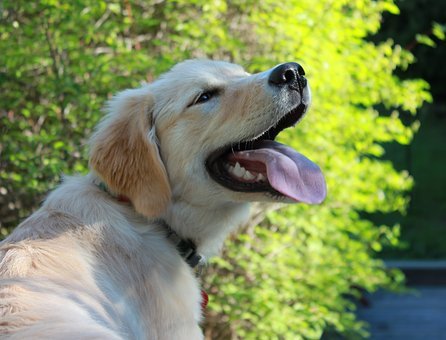There’s no such thing as dog breath!

By Dr. Lindsay Laird
“There’s no such thing as dog breath”. One of my professors in vet school always started her lectures on animal dentistry with this statement. Initially I didn’t believe her, but what she meant was that if an animal’s breath smells bad there is often an underlying cause. What your pet eats or his/or her grooming habits may cause temporary bad breath, but if it’s more of a chronic issue it’s often due to plaque and bacteria build up in the mouth. Tartar forms within a few days if teeth are not kept clean. This provides a rough surface which helps plaque to accumulate further. Eventually, this leads to inflammation in the gums, infection, and weakening of tooth root.
So what do we do about this? The process of gum and periodontal disease is the same in our pets as it is in us. Human dentists recommend we brush our teeth for 2 minutes twice daily, floss daily, and have our teeth professionally cleaned every 6 months. This isn’t really practical for most pets and their owners, especially since dogs and cats do not sit still for professional cleanings and have to be put under general anesthesia. Brushing is the gold standard for dental care. I recommend using an enzymatic toothpaste that is specially designed for dogs and cats. Do not use human toothpaste as it contains fluoride and our furry friends do not know to spit this out. Apply the toothpaste using a “finger brush” designed for pets or a human baby toothbrush. Brush the teeth just like you would your own. Now, not every pet will allow this. For those pets dental chews and water additives can be beneficial. For a full list of veterinary approved products I recommend visiting the Veterinary Oral Health Council’s website http://www.vohc.org/
Brushing, feeding dry food, and using veterinary approved dental products can be great for preventing plaque build up in some dogs, but others will still develop dental disease despite an owners best efforts. In some pets, especially small breed dogs, dental issues are genetic. Just like some people are more prone to cavities than others. Also, if tartar has hardened and thickened on the teeth brushing, dental chews, and water additives are unlikely to resolve it as these are more preventative measures. For these pets a dental cleaning by a veterinarian under general anesthesia is needed. Not only do we clean the teeth the same way as your dentist cleans yours, we also take dental x-rays to evaluate the tooth roots and underlying bone for abnormalities.
As with most things in medicine, prevention is best. It’s best to have a veterinarian evaluate your pet’s mouth once a year or as soon as you’re noticing tartar buildup. If periodontal disease progresses a dental cleaning will be more involved including teeth being extracted (pulled) and your pet spending more time under anesthesia. If your pet already has dental disease and loose teeth you may be thinking “I’ll just wait for them to fall out”. This is not a good plan. Bacteria surrounding the roots can enter the bloodstream, this is called bacteremia. Studies have shown that animals with severe periodontal disease have more damage to their kidneys, liver, and heart than pet’s with less severe or no periodontal disease. Again, early intervention is best.
Many owner’s also have concerns about putting their pet under general anesthesia. The anesthetics we use are generally safe. Having your pet examined and having blood work performed prior to anesthesia further ensures the safety of your pet. If your pet has no underlying, liver, kidney, heart, or other issues they will likely do fine under anesthesia even if they are older. If your pet does have an underlying issue anesthetic protocols can often be tailored to their individual needs or further testing can be done prior to anesthesia to confirm they will be able to tolerate it.
Myself and my fellow veterinarians at Arnold Pet Station recommend brushing your pet’s teeth as much as possible and/or using veterinary approved oral health products. Have your pet’s teeth evaluated at least once a year by a veterinarian or if you notice any issues. Have your pet’s teeth professionally cleaned as soon as it’s recommended. An ounce of prevention is worth a pound of cure! Feel free to call or schedule an appointment at Arnold Pet Station at 410-544-1130 to see how we can improve your pet’s dental health today! Call us for details.
For additional information about this article, Contact Us. And Like us on Facebook for regular updates from Arnold Pet Station!

